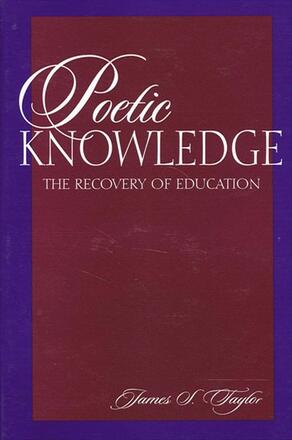
Poetic Knowledge
The Recovery of Education
Alternative formats available from:
Reveals the neglected mode of knowing and learning, from Socrates to the middle ages and beyond, that relies more on the integrated powers of sensory experience and intuition, rather than on modern narrow scientific models of education.
Description
This book rediscovers a traditional mode of knowledge that remains viable today. Contrasted to the academic and cultural fads often based on the scientific methodology of the Cartesian legacy, or any number of trendy experiments in education, Poetic Knowledge returns to the freshness and importance of first knowledge, a knowledge of the senses and the passions.
"Poetic knowledge" is not the knowledge of poetry, nor is it even knowledge in the sense that we often think of today, that is, the mastery of scientific, technological, or business information. Rather, it is an intuitive, obscure, mysterious way of knowing reality, not always able to account for itself, but absolutely essential if one is ever to advance properly to the higher degrees of certainty. From Socrates to the Middle Ages, and even into the twentieth century, the case for poetic knowledge is revealed with the care of philosophical archeology. Taylor demonstrates the effectiveness of the poetic mode of education through his own observations as a teacher, and two experimental "poetic" schools in the twentieth century.
James S. Taylor has been a teacher of English and American literature, Humanities, Western Civilization, and Philosophy of Education, for over twenty years, in private schools and public colleges.
Reviews
"There are relatively few persons who can analyze as clearly and as lucidly the writings of Aristotle, Plato, and Acquinas as does this author. Like Taylor's educational philosophy, he seeks to move his readers' affections and will as well as their intellects, and he does this successfully. " -- Richard Harp, University of Nevada
"With pithy brevity he has managed to provide both a history of the treatment of poetic knowledge and to develop his own very persuasive account. " -- Ralph McInerny, University of Notre Dame